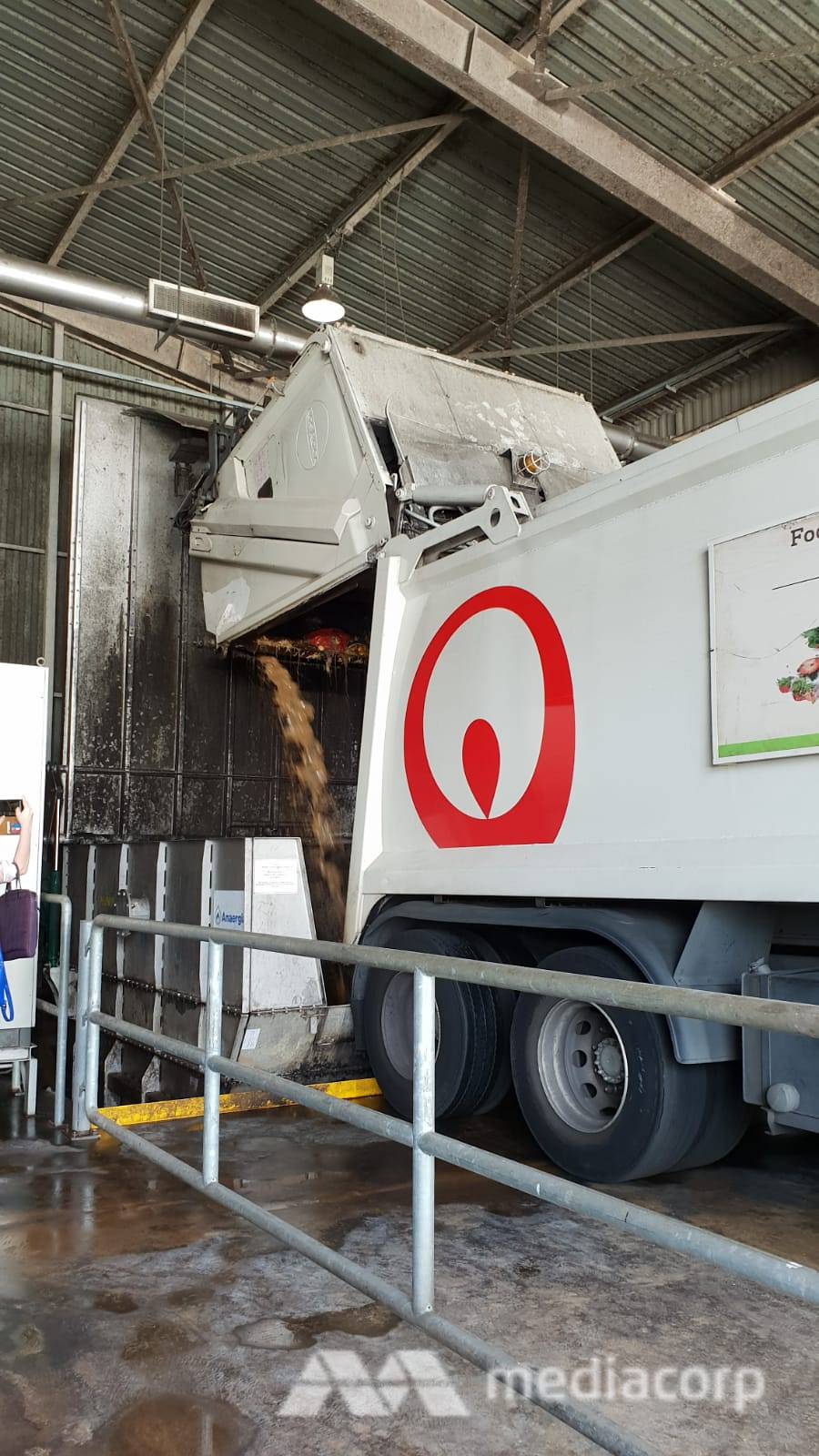SINGAPORE: A new method of using both waste water and food waste to generate biogas will be implemented at Tuas Nexus plant when it opens in 2025.
This follows a two-year trial of the method which has yielded successful results, said PUB and the National Environment Agency (NEA) on Tuesday (Jan 29).
Currently, all water reclamation plants in Singapore use water sludge – solids from household waste water – to generate biogas, which is then used as part of the electricity mix to power the plant.
By adding food waste to the treatment process, it can triple the biogas yield, said PUB and NEA in a joint media release.
A bunker where food waste is dumped. It then undergoes an extrusion process to extract the liquid waste from the solid, which are not used and are incinerated instead. (Photo: Gwyneth Teo)
As part of the trial, which was done at Ulu Pandan Water Reclamation Plant, up to 40 tonnes of used water sludge and food waste from 23 premises were treated daily at the facility.
The trial generally found that mixing sludge and food waste increased the efficiency of biogas production by 300 per cent compared to processing sludge alone, and by 40 per cent compared to processing both sources separately.
At the Ulu Pandan facility, biogas from sludge currently supplies 25 per cent of the plant’s electricity needs. Mixing food waste and sludge can increase this to 40 per cent, after taking into consideration efficiency losses from converting biogas to electricity.

Waste truck dumping food waste at the start of the extrusion process. (Photo: Gwyneth Teo)
This technology will lead to operational efficiencies at Tuas Nexus, said the agencies.
“We can streamline a lot of processes, including reduction of some of these processes, helping us achieve net energy reduction,” said Dr Kelvin Koh, general manager of Ulu Pandan Water Reclamation.
The food waste used in the trial was collected daily from 23 premises, including army camps, schools, markets and hawker centres, as well as F&B outlets.
Participating organisations were required to segregate food waste from other types of general waste on-site, and place it into dedicated food waste bins.




